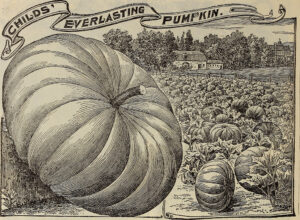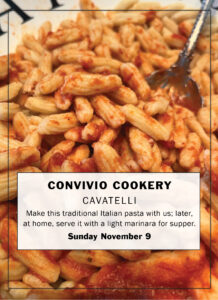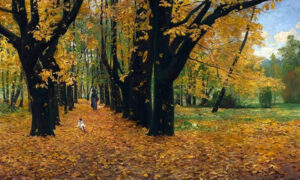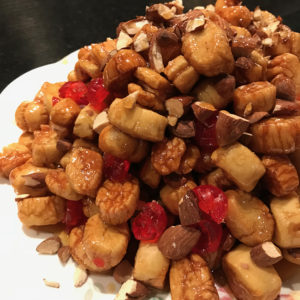Now it is October, and here is your Convivio Book of Days calendar for the month. We’re excited: Even here in this land where Autumn is an exercise in subtlety, I might dare say we’ve seen some hints of change.
Our markets are full of the bounty of the season, trucked in from northern climes. Apples, pears, and my favorites: the pumpkins and winter squashes. I can remember weeding the pumpkin patch when I was a print apprentice under Brother Arnold Hadd at the Sabbathday Lake Shaker Community in Maine in the late 1990s: the warmth of the sun on my back, my hands in the rich soil, and the very particular scent of pumpkin vines, which, for the life of me at this moment, I cannot remember well enough to describe, but I know that if I ran my hand across a pumpkin leaf, the scent would waft up and I’d know it immediately. Something about that fragrance, and the vines and tendrils, and the fruits themselves, spoke to me of great possibility. Of stories and books that I did not know then and still do not know… though I feel they are close at hand, on the horizon. Pumpkins, for me, are more than just a fruit to carve for Hallowe’en or to make into a pie or soup. The thing is, though, I don’t yet know what this all means. It’s a bit of a fairytale, where there is magic, but I’ve yet to discover it or watch it fully unfurl. The feeling is one I can’t shake. Everlasting, like the pumpkin in the engraving that is our cover star for the month.
If you feel this way about pumpkins, too, I’d love to hear your story or your take on this. And in the meantime, I will keep at my annual pumpkin reverie.
As you read this on this First of October, folks in the Jewish tradition will be preparing for Yom Kippur, which begins with tonight’s setting sun. Tomorrow, the Second of October, brings one of the oldest celebrations in the Church: the Feast of the Guardian Angels. It comes on the heels of Michaelmas a few days ago (September 29), which honored St. Michael the Archangel. It is an angelic week, this week, which might explain why I’ve had Shaker songs about angels playing as the soundtrack inside my head all week. I sing them, too, as I brush my teeth or as I go up and down the stairwells at work.
Pumpkins. Angels. Stories. I can’t help it. This may very well be my favorite time of year. Of course I’m singing in the stairwells.
COME SEE US!
The shop won’t be open much in October, though we are trying to put together one last Boo Bazaar one evening before Hallowe’en. For much of October, though, you can find us with a huge pop-up shop at OKTOBERFEST MIAMI at the German American Social Club in Miami. It’s their 68th Oktoberfest: the oldest Oktoberfest in Florida. We’ll be there the second and third weekends of October (Friday through Sunday, October 10 through 12 and October 17 through 19), plus this Saturday, October 4, is a smaller Oktoberfest there at the German American Social Club for the German International Parents Association, and our Miami pop-up shop will be open for that, too.
At the shop this Saturday, come learn how to make gift baskets. It’s our next creative workshop, and it’s with instructor Deborah Desser, who had a gift basket business in Montreal. You’ll learn all the essentials, plus tricks of the trade, and you’ll even get a discount voucher for the shop as part of the workshop ($10 off a $60 purchase; $20 off a $100 purchase). It’s actually an excellent workshop to take if you’ve ever considered a gift basket business yourself, whether full time or as a little side hustle. You’ll learn a lot!
We’ll also teach you how to make homemade Cavatelli in November.
Happy October. The Childs’ Everlasting Pumpkin image is taken from a 1913 garden seed catalog published by the John Lewis Childs Company [Public domain] via Wikimedia Commons.





